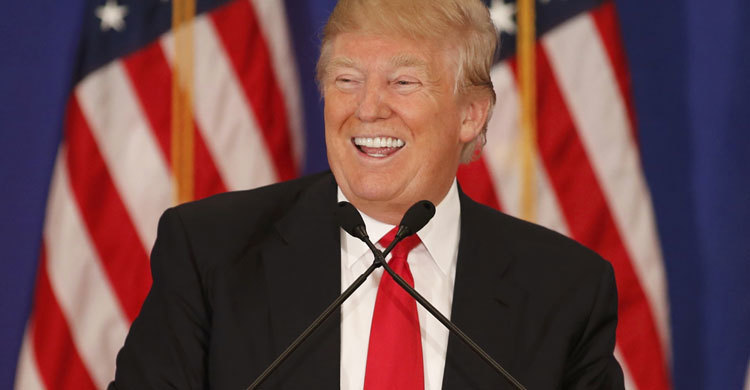Trump signs new travel ban targeting six Muslim nations

US President Donald Trump doubled down Monday on the most divisive action of his young presidency, signing a new executive order temporarily blocking travel to the United States from countries he says pose a high terrorism risk.
The new measure contains some key differences from the one signed in January that prompted nationwide confusion and was suspended in federal court. It bars travel to the U.S. for 90 days from six predominantly Muslim countries - Sudan, Syria, Iran, Libya, Somalia and Yemen, according to a Department of Homeland Security fact sheet. It excludes Iraq, which was on the original list.
The order, which takes effect March 16 to ensure a more orderly rollout than the previous version, does not restrict legal permanent residents, or green card holders, from re-entering the U.S., the DHS said. The first measure initially did, on a case-by-case basis. The order will allow people who had visas by Jan. 27, the date the first order was signed, or earlier to enter the U.S. It also revokes the earlier order.
"This revised order will bolster the security of the United States and her allies," Secretary of State Rex Tillerson told reporters Monday.
Trump has argued that the restrictions, which follow on a key campaign pledge for "extreme vetting," are necessary to prevent attacks on U.S. soil. Critics have contended the measures constitute a religious ban, based on Trump`s campaign rhetoric against Muslims, and could prove counterproductive in fighting terrorism.
The president has berated the judges who suspended the initial order, and the White House crafted Monday`s measure to better stand up to legal scrutiny. It is not yet entirely clear how well the changes will help it do so.
Monday`s order states that the version signed in January "was not motivated by animus toward any religion." It also did not include an earlier provision prioritizing refugees from religious minority groups.
The new order halts all refugee admissions for 120 days. It does not indefinitely suspend the entry of Syrian refugees specifically, as the first measure did.
Trump signed the measure Monday without news organizations present, and the White House did not explain why. He signed most of his previous executive orders with significant media present. Press secretary Sean Spicer tweeted a photo of him signing the order.
The DHS said it will carry out a "global, country-by-country review" of "identity and security information" that each country provides to the U.S. for visa programs. The U.S. will give those countries 50 days to improve their standards.
The order leaves the door open for "additional countries" for which the U.S. may require more restrictions.
"Unregulated, unvetted travel is not a universal privilege, especially when national security is at stake," DHS Secretary John Kelly told reporters.
Regardless of the changes, the travel restrictions will likely spark immediate controversy. After the initial order was signed in late January, Democrats, civil rights groups and some Republicans criticized Trump for the measure and its swift implementation.
Protests broke out at airports across the country. Many visa holders were detained in airports.
Kelly said in February that he should have "delayed it just a bit" after lawmakers raised concerns that they were left in the dark.
On Monday, Attorney General Jeff Sessions defended the president`s authority to issue the new order, as well as the original measure.
Key Democrats started to criticize the travel restrictions shortly after Trump signed the order. In a statement, Senate Minority Leader Chuck Schumer, D-N.Y., called the measure "mean-spirited and un-American."
"A watered-down ban is still a ban," he said, adding that he believes it makes the U.S. less safe.
Schumer contended that, because the White House delayed the order`s signing following a well-received speech, "this has absolutely nothing to do with national security."
House Democratic leader Nancy Pelosi of California also said the move damages security, calling it "the same ban with the same purpose."
Washington state sued the Trump administration over the first version of the measure, prompting its blockage. In a statement Monday, the state`s attorney general Bob Ferguson said it is "carefully reviewing the new executive order to determine its impacts on Washington state and our next legal steps."
The American Civil Liberties Union, which also fought the original executive order, slammed the new measure on Monday. Omar Jadwat, director of the organization`s Immigrants` Rights Project, called it "a scaled-back version that shares the same fatal flaws."
Source: CNBC
